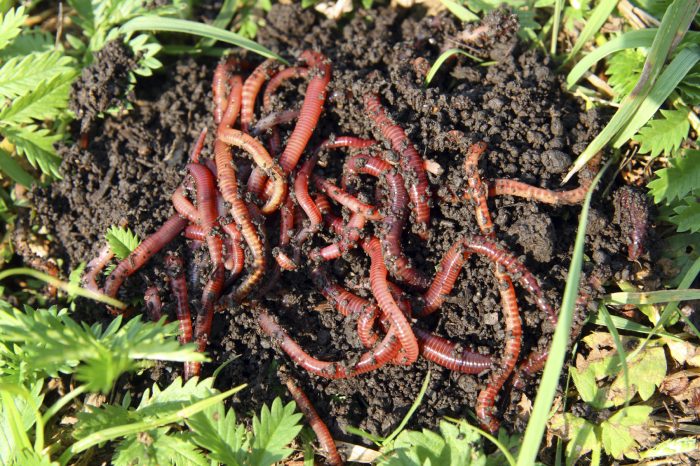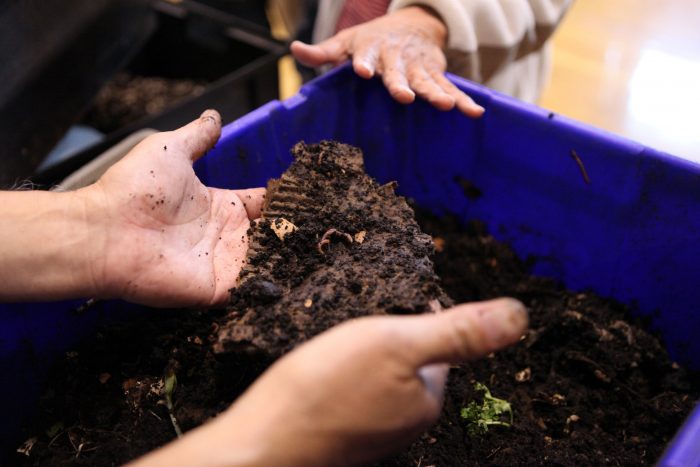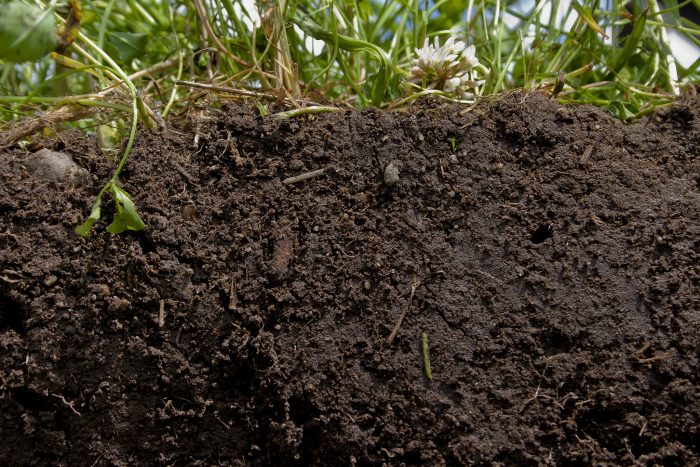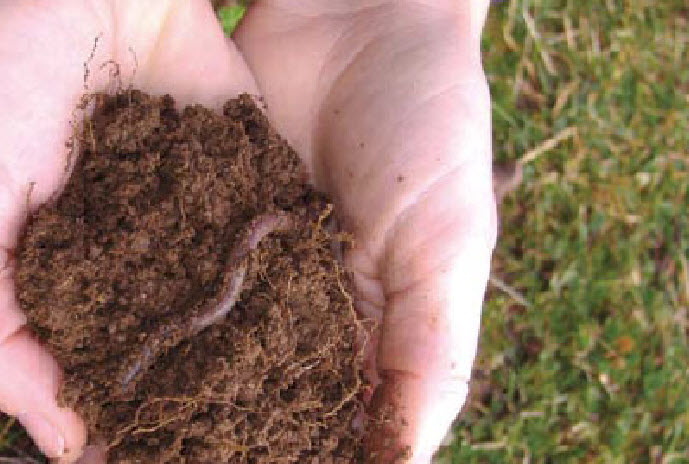
Worm composting, also known as vermicomposting, is a very useful technique to dispose of organic waste while also creating a very good soil fertilizer.
These insects play a very important role in soil construction and an even more important role in making the soil full of nutrients. Having garden worms is always helpful as they will not eat any of your plants but instead make them healthier by providing the soil with all of the nutrients it needs to sustain any plant.

This is the practice of composting, and we will explain all the benefits that come with it.
Benefits of Worms
Every worm can be used for the same purpose of composting.
These little bugs won’t harm a soul and will instead dig tunnels underneath the soil and will eat organic matter as they dig. These activities are only possible if the soil maintains a constant 70 degrees Fahrenheit. Anything too hot or too cold will prevent them from going to their daily lives.
But why would digging small holes be beneficial? Well, every plant needs oxygen and water so it can sustain itself. Getting oxygen down to the roots is pretty darn hard, but the act is made easier by warms.
By digging holes throughout the soil, they make it easier for oxygen and helpful bacteria to make it down their way to the roots of the plant.
Also, these holes make it easier for the plant to send its roots downwards and to easily penetrate the loosen soil. By having longer roots, each plant makes it easier for itself to reach more resources in the earth and to grow healthier roots that make the plant itself much healthier and bigger.
And the final benefit of worms is the fact that they can eat any organic garbage and turn it into efficient fertilizer which we can use to give the plants in our garden the much-needed nutrients and minerals.
The Benefits of Worm Composting

As we mentioned a few times, composting is essential if you want to grow healthy plants.
Composting is essentially done when disposing the organic waste to these insects. The worms then eat up the organic materials and poop. The poop is essentially the organic waste but in a more suitable form that can be used as fertilizer.
This act might put off some people from doing it and it might cause a nuisance in your yard, but it is the best and most efficient way of giving you plants all the nutrients, minerals, and vitamins they need to grow healthy fruits and vegetables.
Before we tell you about the benefits of composting to your plants and yard, let’s talk about the household benefits
Household Benefits
Anything organic found in your home can be given to worms for composting. This includes anything such as leftover foods, but you should be wary as to what leftovers you’re using.
As a general rule, it is advised against composting dairy products, oily products, and buttery products because they attract other insects that might harm the warms.
Also, it is advised against oranges and other citrus fruits because they can be harmful to the worms themselves due to the high levels of acid that they contain.
The best leftover foods to give worms for composting are fruits and vegetables, with the exclusion of oranges and citruses.
There are also non-organic materials that you can give the worms for composting. These include the likes of cardboard, newspapers, tea bags, paper towels, old rugs, carpets, coffee grounds and filters, and many others.
If you want a good guide on how to being red worm composting, red worms are generally seen as the best types for it, then make sure to visit redwormfarms.com
Household benefits of composting include the following:
- Reduces the amount of organic trash in your home. Experts have said that you can reduce the organic waste by as much as a third by setting up a worm bin for composting.
- Recycling organic waste can drastically lower your trash costs by canceling the curbside pickup costs.
- By recycling organic waste, you are effectively eliminating the bad odor that can sometimes derive from organic waste as a result of sitting idle in the trash.
Now, let’s take a look at the benefits of worm composting for our plants and gardens.
Plant and Yard Benefits of Worm Composting
· Increases Organic Matter in Soil

Soil with excellent amounts of organic matter is the perfect practice to grow healthy fruits, vegetables, crops, and even trees. Organic matter is any material that derives from either plants or animals. The compost from worms is an effective organic matter that is high in nutrients, minerals, and vitamins that make for an excellent boost to our plants.
The more organic matter the better the soil, and the better the soil the healthier our plants will grow and produce fruit.

· Increases Microorganisms in Soil
Microorganisms can be very beneficial, but also very dangerous for our plants. They’re essentially single-cell organisms that can do a lot of good things for your plants if used properly.
The only way to use them properly is though worm compost. This way, you are only attracting thee beneficial microorganisms and using them to combat the negative ones. Also, these microorganisms can battle anything from single-cell organisms to very harmful insects.
They create the perfect environment in the soil so your plants can grow healthy, strong, and disease-free.
These are some of the benefits, amongst others, that come with using worm compost. We’ve talked a lot about why worms are good for your yard and plants, and we talked about why they’re good for your household.
If you ever wanted to reduce costs related to trash pickup, then why not invest in a worm bin that will lower trash costs as much as 33%.
There are many ways in which you can use this technique, and many ways to set up a worm bin. We provided you with a link easier where you can read more on the subject.

















